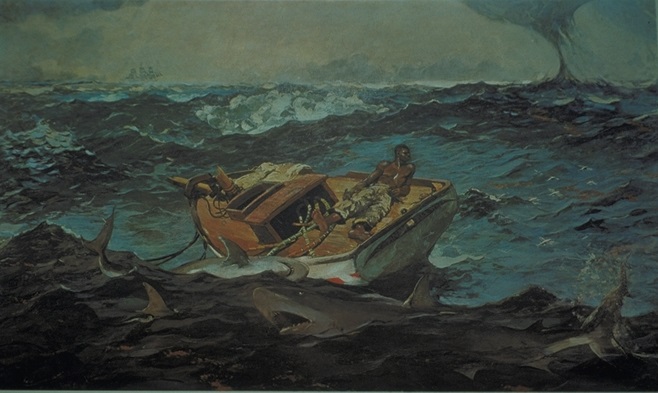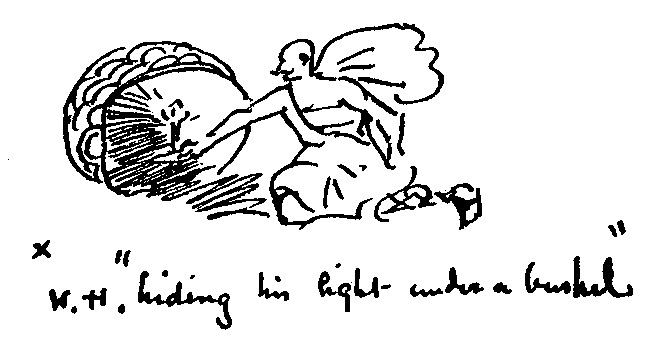
Compare Homer's The Gulf Stream. Note the position of the boat and the position of the ship in the background. Although the similarity to Allston's painting is obvious, much is different. The boat is demasted. Instead of a square rigged ship with sails down, there is a schooner under full sail. The waterspout suggests a hurricane. Much has been written about Homer's The Gulf Stream, but it is mentioned here because of its connection to a book that Winslow Homer owned. That book provides significant additional background regarding how Winslow Homer viewed Nature and may add to the understanding of The Gulf Stream.
